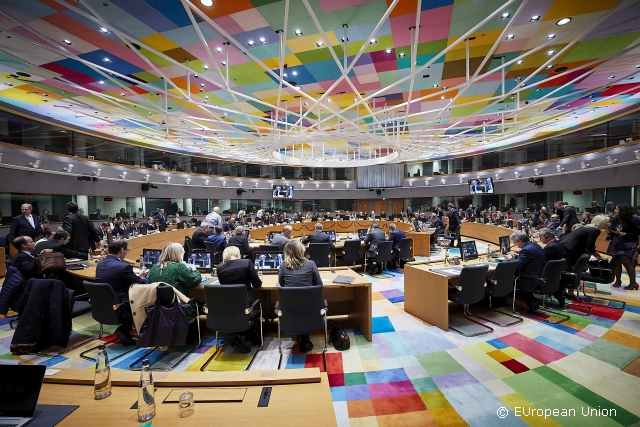Negotiations over the EU budget
The General Affairs Council on Monday addressed the upcoming EU budget

Roxana Vasile, 18.02.2020, 13:50
Representatives of EU Member
States, including Romania, on Monday met in Brussels on the sidelines of the
General Affairs Council to discuss the upcoming budget for the 2021-2027
period. The topic ranks high on the agenda of the upcoming EU Summit on
Thursday, which is due to decide how Europe’s money will be spent over the next
seven years. At the end of the General Affairs Council, Commissioner for Budget
Johannes Hahn said the meeting will most likely extend over several days. Talks
are marred by great many divergences over the negotiation framework proposed by
European Council President Charles Michel.
Over the last few weeks Charles
Michel has consulted with all EU leaders and summoned a summit on February 20
in an attempt to reach consensus. A difficult task it seems, given that talks
over the 2021-2027 multiannual financial framework are being further
complicated by the withdrawal of Great Britain from the community bloc, a net
contributor to the EU budget. In brief, Charles Michel suggested an increase in
the contribution of national governments to the budget of 1.07% of GDP, whereas
rich countries refuse to allot more than 1%. At the same time, Charles Michel
suggested to strike a balance between new and old policies, additional funds
for the fund for transitioning to a green economy, new self-sufficient
financial resources, as well as an overhaul of the cohesion policy that should
help less developed countries and areas.
Charles Michel’s proposal is seen as
mostly favoring Eastern-European countries, which have opposed any slash of
development funds. As for those Member States supporting the mechanism that
conditions the disbursement of European funds on the observance of the rule of
law, they claim the European Council president has considerably eased criteria
for this mechanism. Austria, Denmark, the Netherlands and Sweden want to
maintain the system of reducing rebates for contributing states, namely for
those whose contribution to the EU budget exceeds their allotted share.
According to Austria, in the absence of rebates, these four countries plus
Germany would end up financing 75% of net payments to the EU budget. As for
Romania, our country wants the EU to continue financing the common agricultural
policy and the cohesion policy, which remain the main instruments of reducing
disparities between East and West inside the EU.
(Translated by V. Palcu)






























